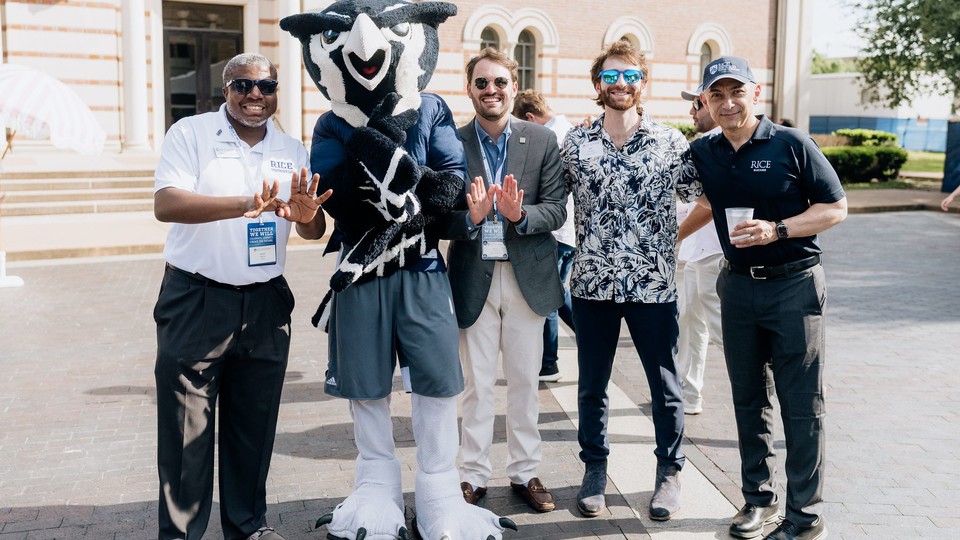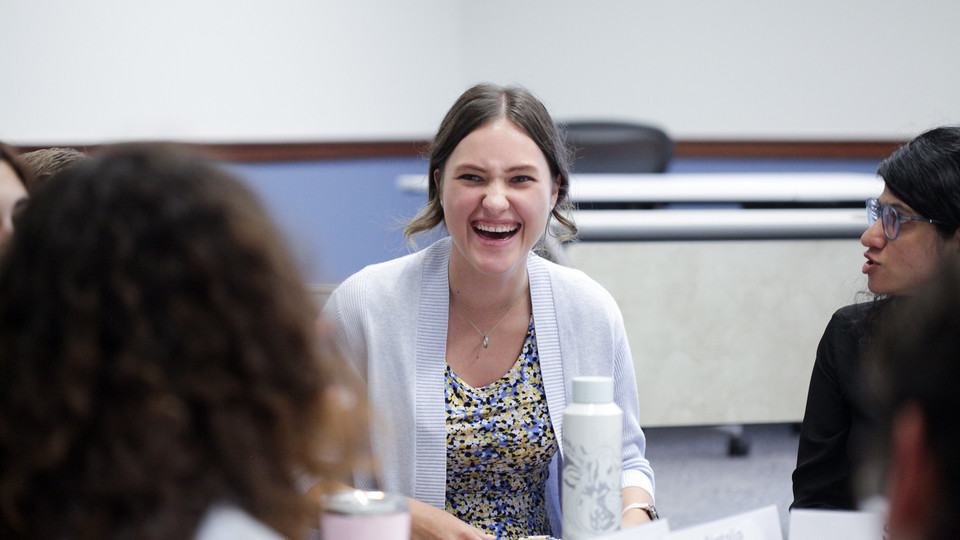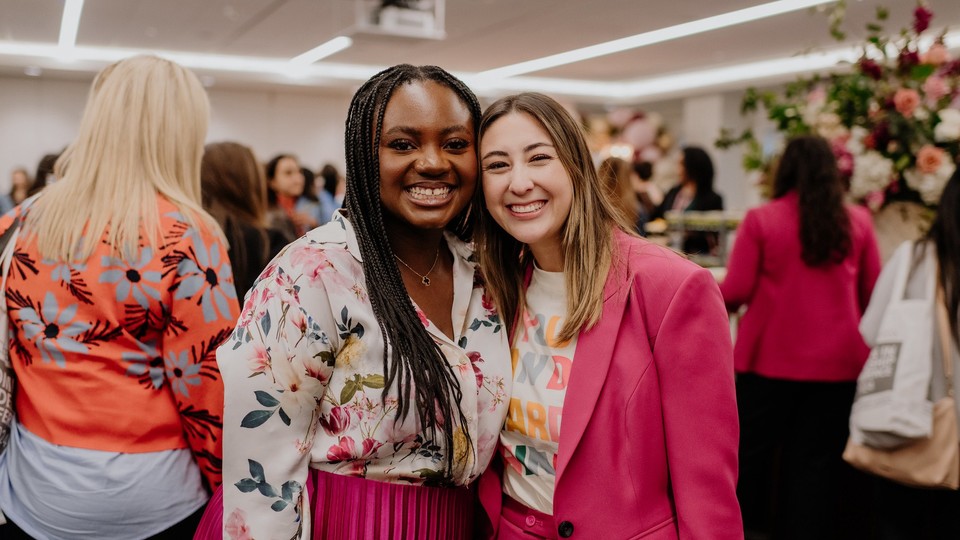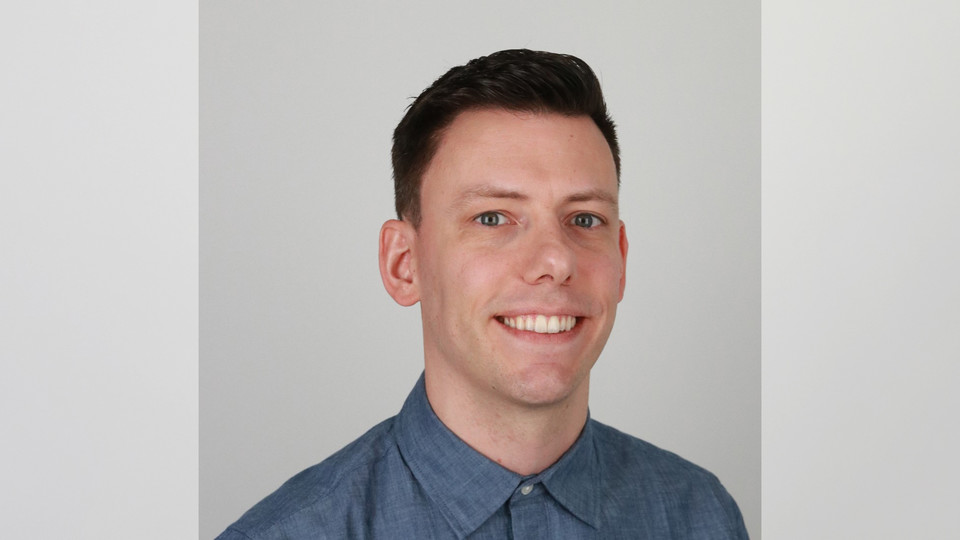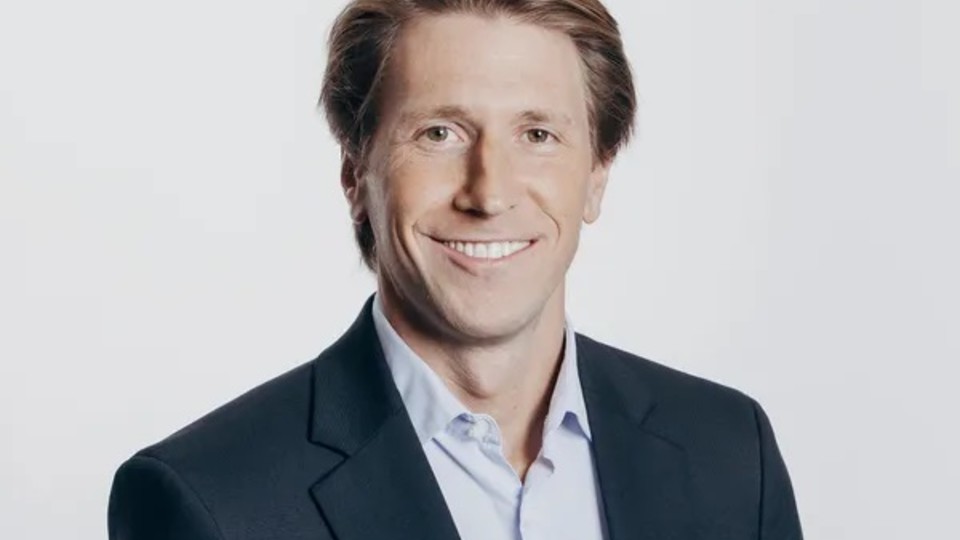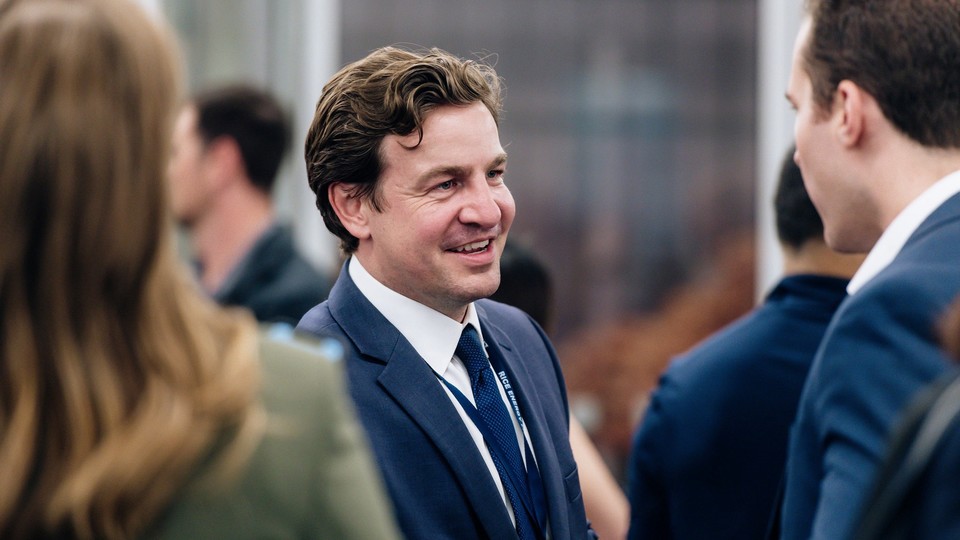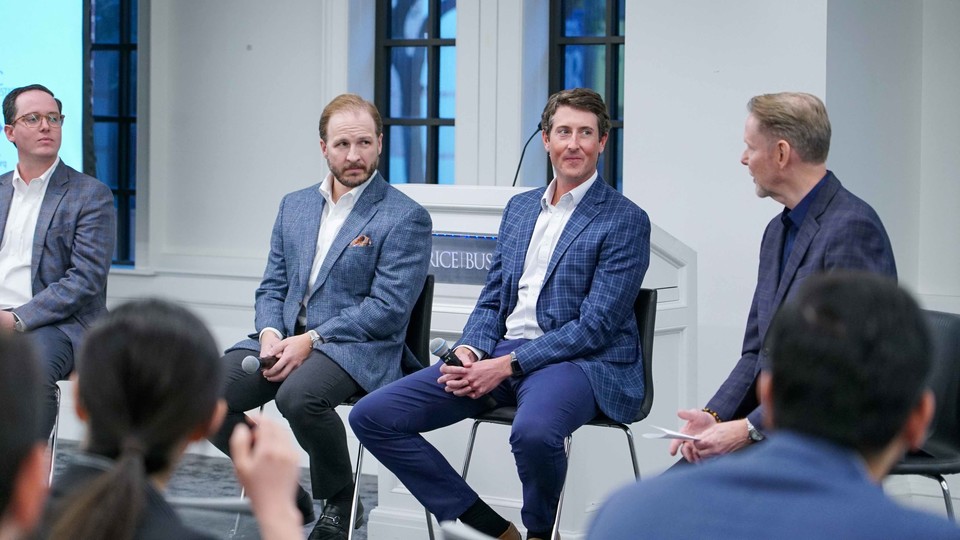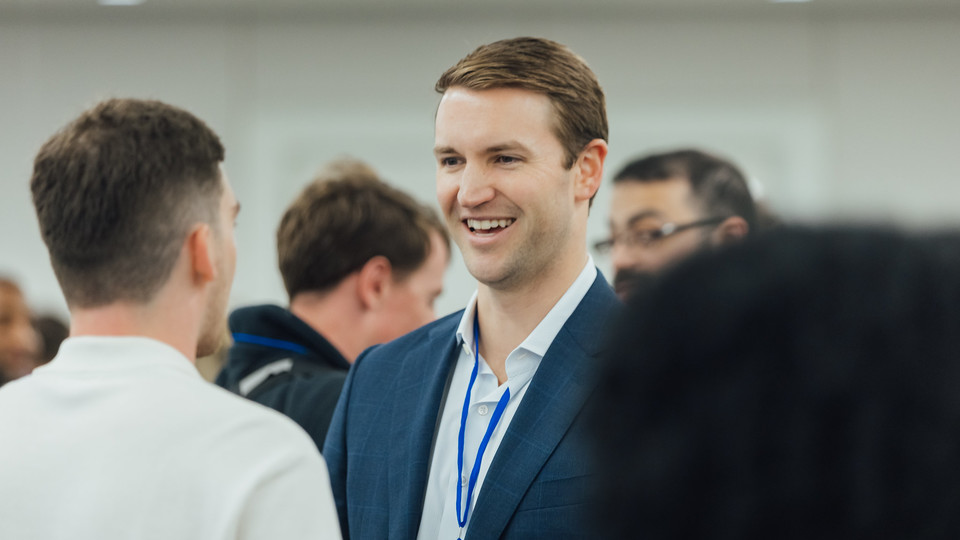
Scaling Up: A Journal of My Rice MBA Years
Life is all about choices, many of which are temporary. Some chances are worth taking, especially if they allow you to be a part of something larger than yourself.


I vividly remember the day in early 2019 when the glass ceiling inside my mind broke open, thanks to my husband and my manager. They challenged my unconscious bias about working mothers settling for the status quo. I was intimidated by the thought of sacrificing family time for my career, let alone furthering my education with a second graduate degree. I learned that life is all about choices, many of which are temporary, and that some chances are worth taking, especially if they allow you to be part of something larger than yourself.

Why I Decided to Pursue an MBA
After a decade in engineering, I was in the same boat as many other professionals: debating between a technical and managerial career path. I pivoted to product management, which seemed to provide a happy medium for combining both skills. Soon after, I realized I needed to understand the commercial side of the business, including finance, accounting, how to generate value to customers and cash flow to the business. An MBA, I decided, was the tool I needed next to develop my career. Then, with the help of my husband and number one supporter, I created a detailed plan to manage the various responsibilities that were already on my plate. That included two toddlers, a demanding job, other family commitments and household chores. Speaking to a fellow mom who graduated from Rice a few years earlier helped me for the journey.
Becoming a Rice Owl
I then applied to Rice Business. I chose Rice because I was sure that an MBA from a prestigious university such as Rice would broaden my horizon, open doors for leadership opportunities and help me realize my professional, personal and community goals. Within a few weeks, I received word: I'd been accepted.
The first week of launch (Rice's program orientation) was the hardest. We all had to ramp up from zero to 60mph in what seemed like five seconds to keep pace with the curriculum. While reading numerous case studies (after years of non-focused reading) and loss of sleep were challenging, the excitement of meeting like-minded, Type A personalities, all wanting to make an impact on the world, was both energizing and inspiring.
Staying focused on weekend classes after a hectic workweek was daunting at first. Still, the cohort experience, sense of camaraderie, post-class fun (known as PCFs) activities, and intensely engaging classroom sessions, thanks to world-class professors, made the days go by quickly.
The end of the first semester felt like a feat. The sense of accomplishment when I got my grades made going back to school, adapting to the rigorous schedule, lack of sleep, long days, longer team calls (and a few healthy conflicts) worth the effort. The guest lectures, team building events like the Rice Owl Bowl and 'Owl'ympics are just a few examples of the enriching experiences at Rice Business.
Year Two
The next full year went by, thanks to the immense support from my phenomenal team of fellow students who accompanied me through lots of learning and relying on each other's strengths, both technical and soft skills (influencing, listening, critical thinking, negotiation and decision making). This team eventually became my closest set of friends that year. By graduation, they all knew the bedtimes of my kids and were used to waving them goodnight during weekly meetings.
Interested in Rice Business?
Challenges From COVID-19
Just when things were going quite smoothly, COVID-19 hit.
The hardest part, for so many of us, was the family challenges. I had to be away from my son for a few months when travel restrictions turned a short visit to his grandparents in India into an extended stay. He loved it, but for me, it was a sacrifice I'm never willing to make again. This, combined with the guilt that came from seeing my daughter fall asleep by my desk several nights, wanting to just be with her mommy, were some of the hardest moments during the course.
At Rice Business, there were so many people that helped smooth the way. I'm grateful to the entire Rice University team, including professors, the admin team, IT & support staff, and custodians, as well as the Jones Student Association for Professionals (JSAP) for their extra effort. They ensured we had a smooth transition to virtual schooling. While my cohort was disappointed about not visiting Argentina for the Global Field Experience or GFE (Rice University is one of the few schools to offer such an opportunity), virtual GFE taught us real-world management consulting experience. We learned how to make a positive impact on the bottom line of small organizations while also learning about their culture.
The Last Semester
The final semester was nothing but rewarding. Rice Business requires a Capstone consulting project for a non-profit organization – something that opened my eyes to the possibility that the professional community can help serve the larger community by using our networks and skills. This was proven when the Texas winter storm hit and the entire Rice community stepped in to help our project team provide Houston with food, water and blankets. The ability to make a difference in the lives of people while applying management concepts was a profound experience for me.
During the last semester, I also graduated from CoachRICE. This is a leadership coaching program from Rice's Doerr Institute that blends emotional intelligence training with proven coaching methodologies to help create effective leaders. CoachRICE helped train me to empower others to realize their full potential. It also helped me and my classmates set up a youth coaching program for high school students in partnership with an NGO, Amel Association Houston.
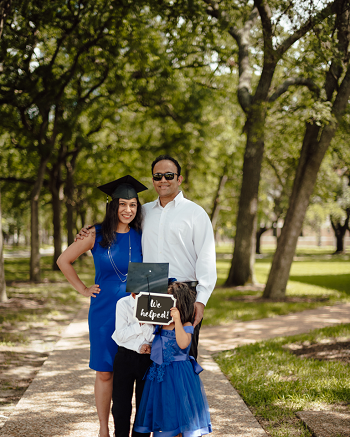
Navigating an MBA as a Parent
If you are a parent considering an MBA (or another degree): Be present. Be intentional. Try to see the big picture. Don't compare your journey with those of other students. Stay optimistic. Practice self-care. Define what success means to you, express gratitude to your support system and share the learning with your loved ones – make it a collective journey. Most importantly, accept help and help others whenever you can.
Looking back, was the experience challenging? Heck yeah. Expensive? Definitely. But the feeling of overcoming inhibition, breaking your own glass ceiling, being vulnerable, challenged, stretched, developing resilience, adapting quickly to stay in the game AND reaching the finish line: valuable for a lifetime.
Rice Business offers a comprehensive MBA experience, equipping students with skills in leadership, professional development, and networking. If you're interested in a supportive community offering Professional MBA programs and MBA Leadership Skills, learn more about our programs.
You May Also Like
Keep Exploring
Rice Business professor elected fellow of Academy of Management
Jing Zhou, the Mary Gibbs Jones Professor of Management and Psychology at Rice’s Jones Graduate School of Business, has been elected as a fellow of the Academy of Management (AOM).
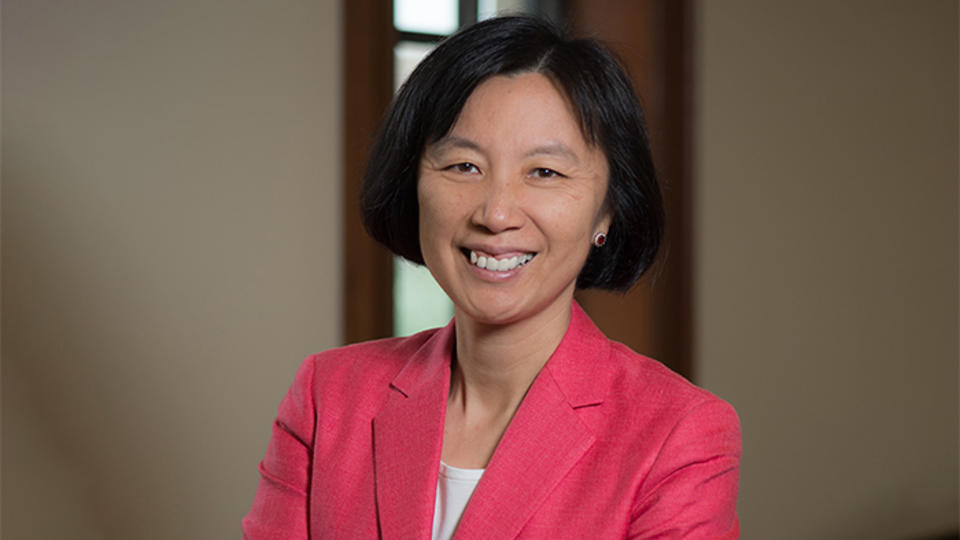
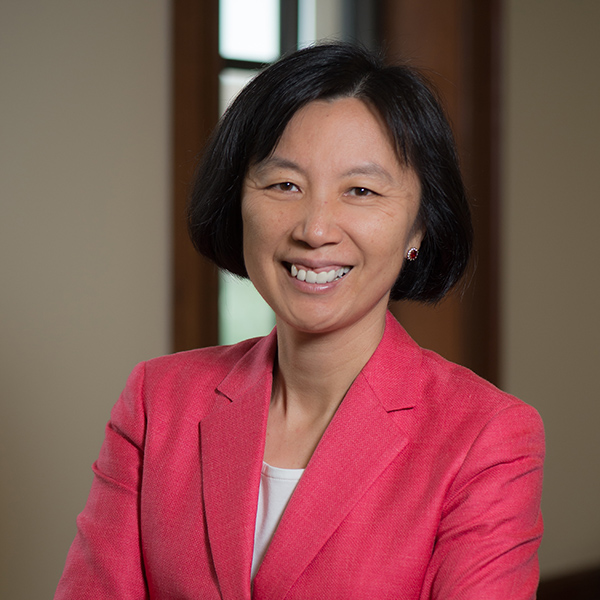
Jing Zhou, the Mary Gibbs Jones Professor of Management and Psychology at Rice’s Jones Graduate School of Business, has been elected as a fellow of the Academy of Management (AOM).
“(Zhou) joins a distinguished group of scholars (including two retired JGSB faculty, Jennifer George and Bob Hoskisson) to be recognized by the AOM for their significant contributions to the field of management,” wrote Jeff Fleming, deputy dean of academic affairs and the Fayez Sarofim Vanguard Professor of Finance at Rice Business, in a May 3 announcement to the JGSB. “This is a tremendous honor and one that is richly deserved.”
Zhou was nominated and elected for fellowship — the academy’s highest level of distinction — by sitting fellows. AOM has nearly 20,000 members from 120 countries. Members include professors and Ph.D. students from business schools around the globe, as well as academics in related social sciences and other fields.
Zhou is the organizational behavior area coordinator, director for Asian management research and education and director of the Ph.D. program at Rice Business. She has previously been elected a fellow of the American Psychological Association, the Association for Psychological Sciences and the Society for Industrial and Organizational Psychology.
A recent study ranked Zhou among the most influential 1% of researchers in business and management. Her work has appeared in top journals, she has co-edited several books on creativity in management and she has built a systematic research program on workplace creativity and innovation.
Zhou has received the Journal of Management’s Best Paper Award twice and served as an editor of the Journal of Applied Psychology and as president of the International Association for Chinese Management Research.
You May Also Like

Rice University’s Jesse H. Jones Graduate School of Business today announced the launch of its Graduate Certificate in Healthcare Management program, a 10-month, credit-bearing professional credential designed for current and aspiring leaders seeking deep expertise in the business of healthcare.
7 Rice Business professors recognized as 2021 Teaching Excellence Award winners
Seven members of the Jones Graduate School of Business faculty were recognized for excellence in teaching at Rice University’s May 14 investiture ceremony at Rice Stadium. Honorees were chosen by the Rice MBA alumni group as well as by students in the Jones School’s MBA programs.
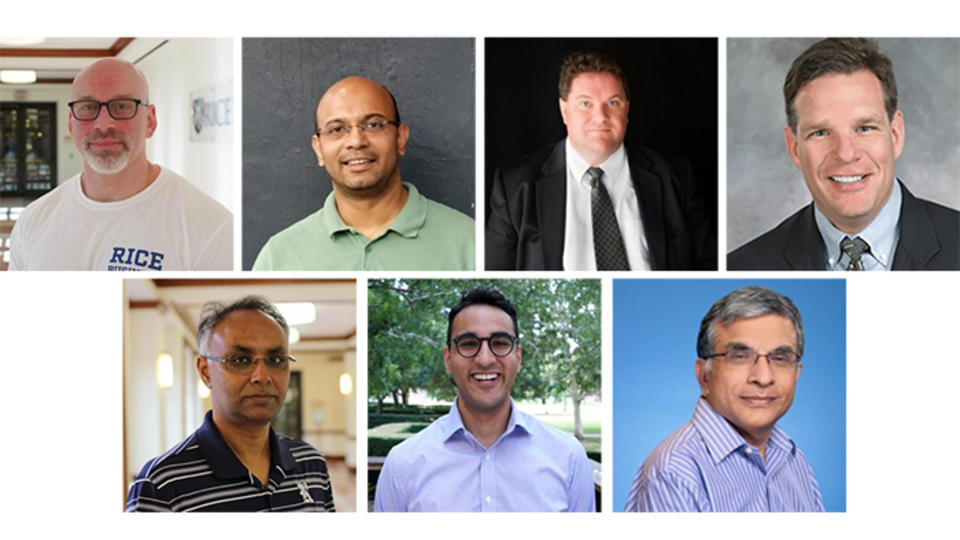
Seven members of the Jones Graduate School of Business faculty were recognized for excellence in teaching at Rice University’s May 14 investiture ceremony at Rice Stadium. Honorees were chosen by the Rice MBA alumni group as well as by students in the Jones School’s MBA programs.
Brian Akins, associate professor of accounting, received the Jesse H. Jones Graduate School of Business Alumni Award for Excellence in Teaching. Akins teaches financial accounting in the full-time and professional MBA programs as well as the Ph.D. program. His research focuses on financial reporting quality and the impact of accounting in debt and equity market settings.
Karthik Balakrishnan, associate professor of accounting, was honored with the Jesse H. Jones Graduate School of Business MBA for Professionals Weekend Award for Teaching Excellence. His research investigates the economic consequences of corporate disclosure, financial reporting and disclosure regulations. Balakrishnan also is a recipient of the London Business School Excellence in Teaching Award.
The inaugural MBA@Rice Section Award for Teaching Excellence was presented to John Buffington, lecturer in management and finance. He is a senior forensic economist at the U.S. Commodity Futures Trading Commission, where he investigates incidents that involve elements of fraud, disruptive trading, market manipulation or spoofing within the commodity markets.
Al Danto, lecturer in management, entrepreneurship and information technology, received the inaugural MBA@Rice Lead Award for Teaching Excellence. Danto is managing partner of the Danto Group, which advises the owners of privately held companies on developing and completing exit strategies, valuations and due diligence representation. Danto has previously won the Jesse H. Jones Graduate School of Business MBA for Executives Award for Teaching Excellence.
Balaji Koka, associate professor of strategic management, received the Jesse H. Jones Graduate School of Business Full-Time MBA Award for Teaching Excellence. Koka joined Rice Business in 2008 and teaches in the Executive MBA and Full-time MBA programs. He also received the Teaching Excellence Award from the EMBA program in 2014.
Kunal Sachdeva, assistant professor of finance, received the Jesse H. Jones Graduate School of Business MBA for Professionals Evening Award for Teaching Excellence. In 2020, he won the 2020 Moskowitz Prize from the Kellogg School of Management at Northwestern University. Prior to joining Rice, he completed a Ph.D. in finance from Columbia Business School and previously graduated from the MIT Sloan School of Management with a Master of Finance degree.
The Jesse H. Jones Graduate School of Business MBA for Executives Award for Teaching Excellence was presented to Shiva Sivaramakrishnan, the Henry Gardiner Symonds Professor of Accounting. He joined Rice in 2012 and has taught courses in management accounting and financial reporting for undergraduate, graduate, MBA and Executive MBA programs.
For more information about Rice Business faculty and their teaching and research, go to https://business.rice.edu/faculty-and-research.
You May Also Like
A look inside the Ion, Houston's new tech hub inside a converted Sears
The former Sears Midtown has completed its $100 million metamorphosis into the Ion, a tech-focused office and collaboration center that debuted Thursday. Rice University, which owns the development, expects to hold indoor gatherings in the fall as pandemic restrictions subside.
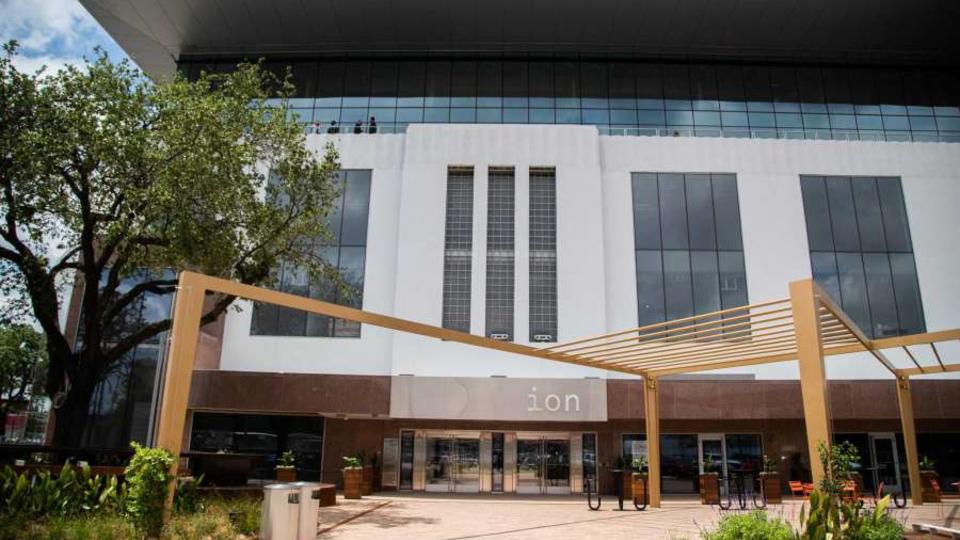
2021 Best & Brightest MBAs: Casey Sherrod, Rice University (Jones)
"Growing up in Houston, Rice was always my dream school. What really makes our program stand out are our small class sizes and the close bonds formed while at the school."
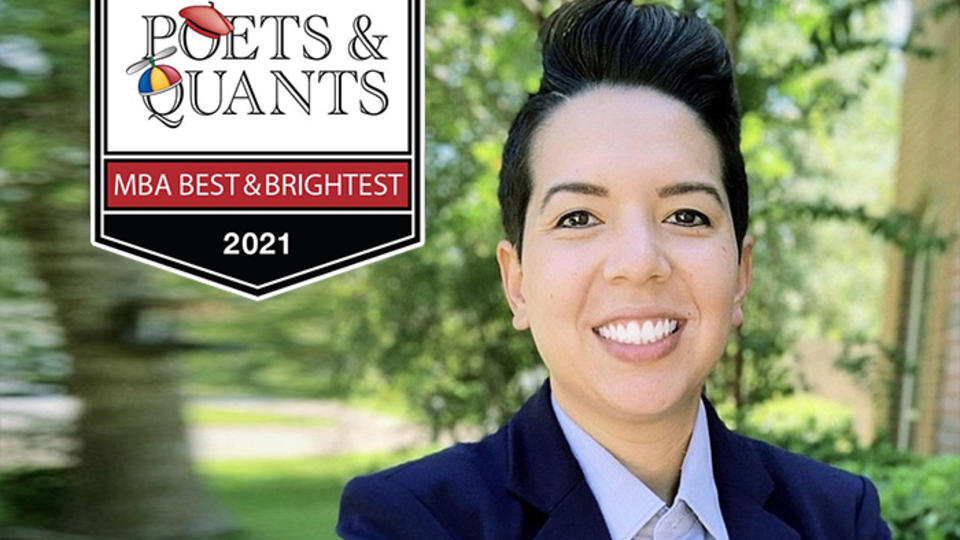
2021 Best & Brightest MBAs: Zachary White, Rice University (Jones)
"I chose Rice because they showed the greatest interest and ability in helping me meet my business school and post-MBA goals. With graduation in sight, I can confirm that choosing Rice was unequivocally the right decision for me."
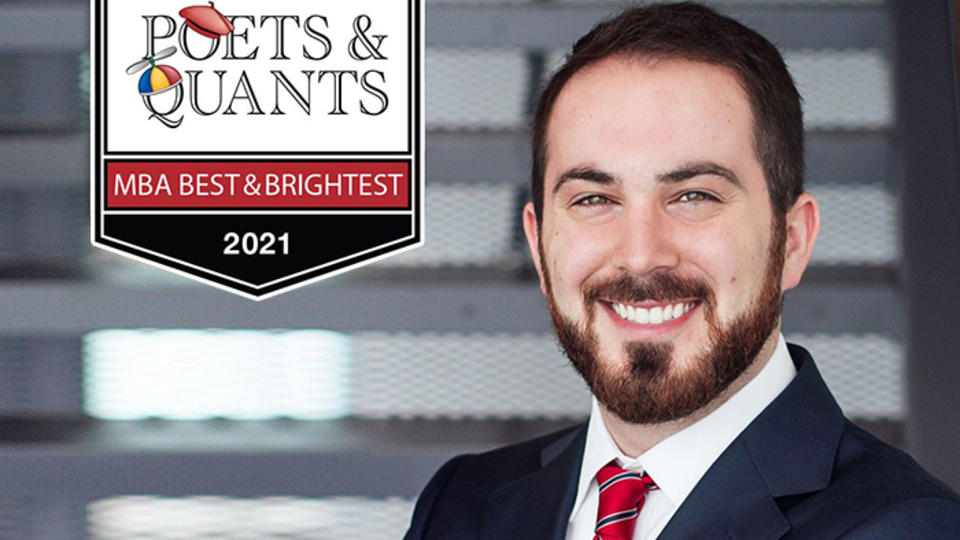
Houston research: Why venture capital firms might change a startup's leadership
Consider the 21st century’s most storied CEOs: Steve Jobs, Bill Gates, Jeff Bezos. All have one thing in common – not only did they run their companies, they founded them. An article based on research by professor Yan "Anthea" Zhang and Salim Chahine.
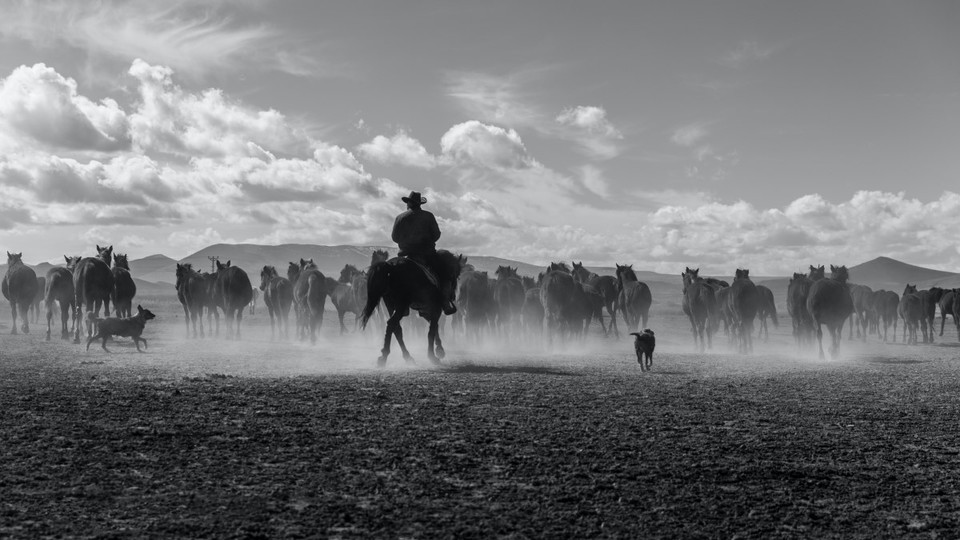
Lesson Plan
In 2020, WILC sold out a week in advance, with over 500 attendees and nearly 200 companies represented. Here, MBA student Caroline Yuki Yang describes what she gained at the 2020 gathering.
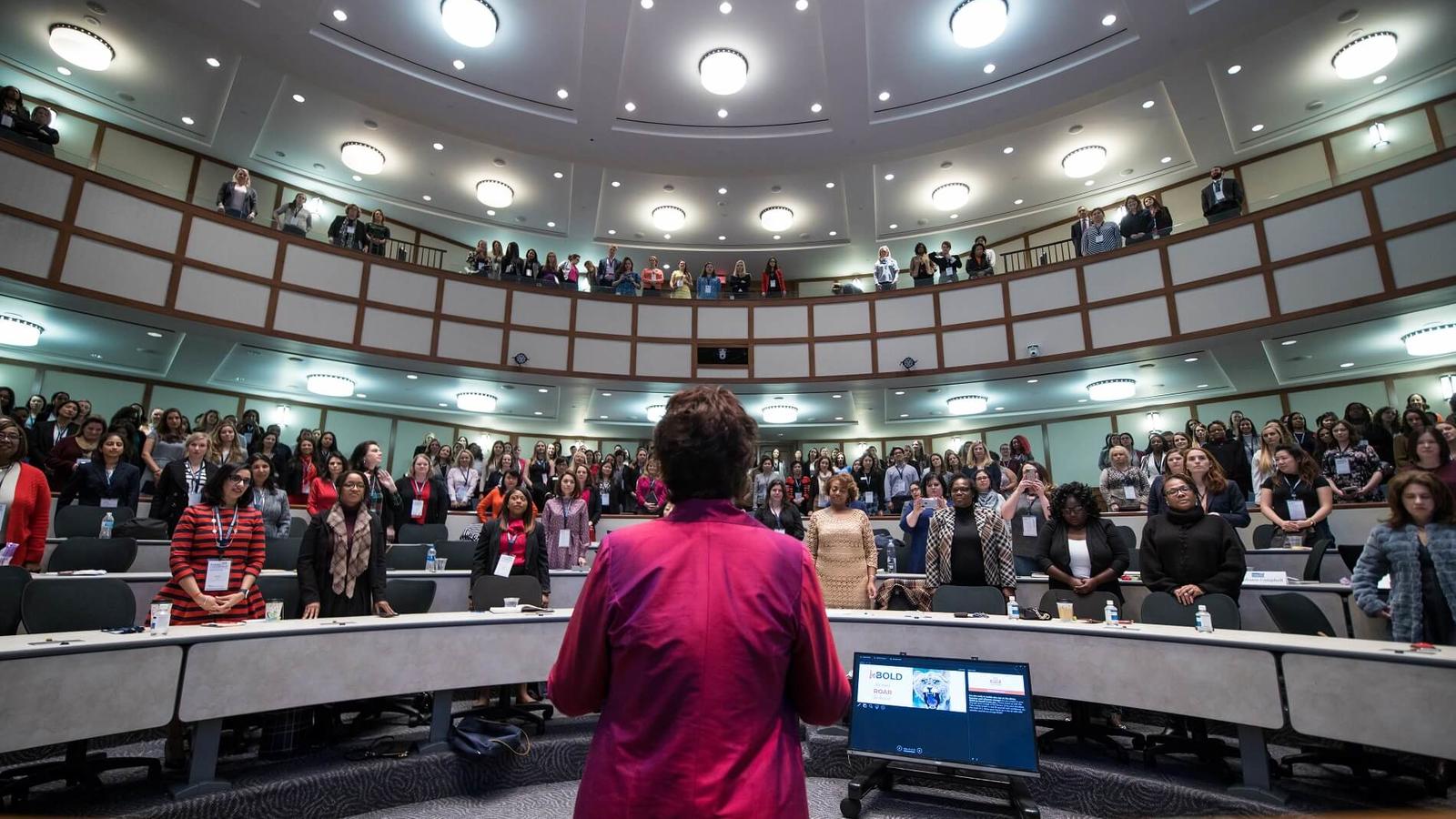
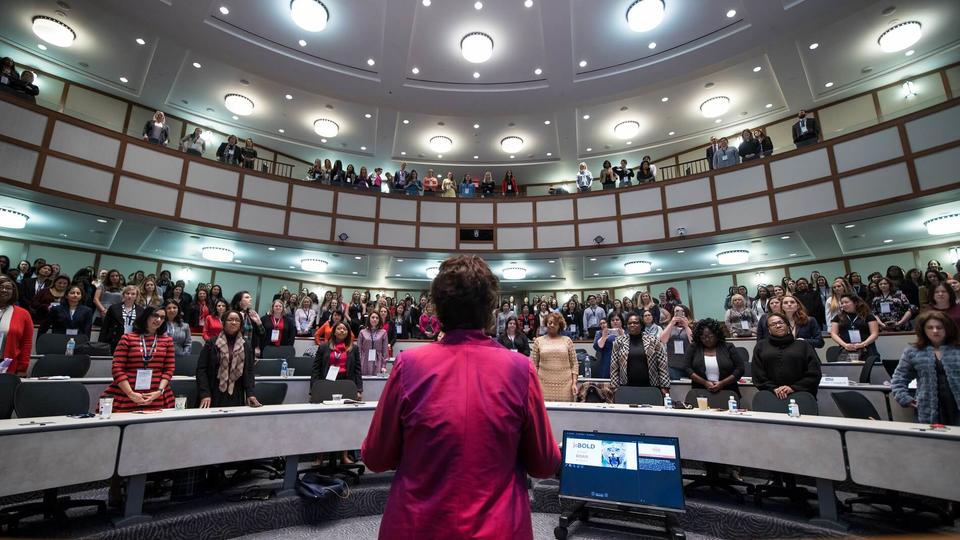
In 2000, MBA candidates Tricia Mitchell-Kim and Jennifer Lange launched the inaugural Women in Leadership Conference (known as WILC) at the Jones Graduate School of Business at Rice University. With few female role models in business and even fewer in-class case studies, the two Rice Business students believed that Rice Business should be the site of an event that not only highlighted female leaders but invited them to network in person with students. Ever since, Rice MBA students have passed the WILC planning torch from one class to the next. In 2020, WILC sold out a week in advance, with over 500 attendees and nearly 200 companies represented. Here, MBA student Caroline Yuki Yang describes what she gained at the 2020 gathering.
Early on the morning of the WILC conference I was excited and ready. I got up at 4:30 a.m., knocked out my work emails in time for the 7:00 a.m. breakfast, and just before setting out, updated my Facebook status: “Happy Valentine’s Day, ladies. Celebrating with Women in Leadership Conference 20th Anniversary, love yourself, love and protect your dreams.”
I was right to have been excited. The conference began with a truly extraordinary speaker: corporate CEO and U.S. Marine Corps veteran Ann Fox, who told us about her service experience, including how she was able to save an innocent life due to her different perspective from male colleagues.
Interested in Rice Business?
With each subsequent speaker, I found myself even more challenged, energized and more focused on my goals. Surrounded by female business leaders, I felt my career dreams had been reignited. In the words of ending keynote speaker Sandy Asch: “I am ready to be bold and roar.” Below are some of the most memorable words, dashed down in my notebook as I listened to these powerful talks.
Ann Fox, President and CEO at Nine Energy Services:
- Consider the opinions and thoughts of others, listen to their perspective.
- Become your own keynote, create more keynotes and remember, as the twig you can be flexible and bend, but never broken.
- Do not make people choose between work and their families.
Sruba De, Vice President of Global Retail Insights & Solutions at MasterCard Advisors:
- Leadership requires three main things: powerful communication, the ability to influence and thriving outside your comfort zone.
- Speak with intention and clarity. Think about what you want people to remember about your words.
- Influence is about convincing others to share your intentional goals.
Tandra Jackson, Vice-Chair of Growth and Strategy at KPMG US:
- The biggest barrier in my career was my own mindset. You need to shift your mindset to go further. Don’t just focus on what’s working and keeping things the same.
- What I would tell my 21-year-old self is to have a network. Surround yourself with different people. You never know how the dots are going to connect.
- When making difficult decisions, know yourself and know how the decision impacts your ecosystem: business and personal.
Gigi Lindberg, Vice President, Commercial Relationship Manager at BBVA
- I sold Turkish wine at Michelin star restaurants and people asked me, “How did I get into these restaurants?” I said, “Talk to the right people.”
- Use Mel Robbin's 5-second rule to center yourself.
Larry Perkins, Associate Vice President, Talent and Diversity, University of Texas MD Anderson Cancer Center:
- Leadership is a sport. There’s going to be conflict.
- Diversity is a fact. Inclusion is an act.
- Be deliberate and intentional.
Lynda Clemmons, Vice President, Sustainable Solutions at NRG Energy
- Think about how your message is heard and effectively communicate.
Sandy Asch, CEO of Sandy Asch and author of the best-selling book, Roar:
- To be bold and influence change you must Velcro to your purpose, be radically transparent, respond – don’t react, and embrace your fears and failures.
I hope my takeaways above will nourish you as much as they have nourished me. In fact, in the months after the conference, something interesting has happened: many of the lessons I gathered there have grown more – rather than less – vivid. In some cases, though I remember the concept, I no longer recalled the speaker or the moment when I heard them.
So, with apologies and thanks to the participants who shared these ideas, here are paraphrases of three or more of the lessons that have most helped me after my day at WILC:
- Know where you want to go, then communicate to others that that’s where you belong.
- How you respond to people under stress says a lot about leadership; people are watching.
- And finally, maybe the easiest lesson to memorize but the one that may take a lifetime to absorb: there’s no such thing as failure – only feedback.
I hope the ideas I’ve shared will inspire you as much as they inspired me. I encourage you to attend the next WILC.
You May Also Like
Keep Exploring
Texas veterans win big at Rice University's veteran-owned business competition
Three veteran-owned businesses were awarded prize money during the 2021 Rice University Veterans Business Battle held in late April. During this year's event, 16 veteran-owned businesses from around the United States pitched their ideas before a panel of investors.
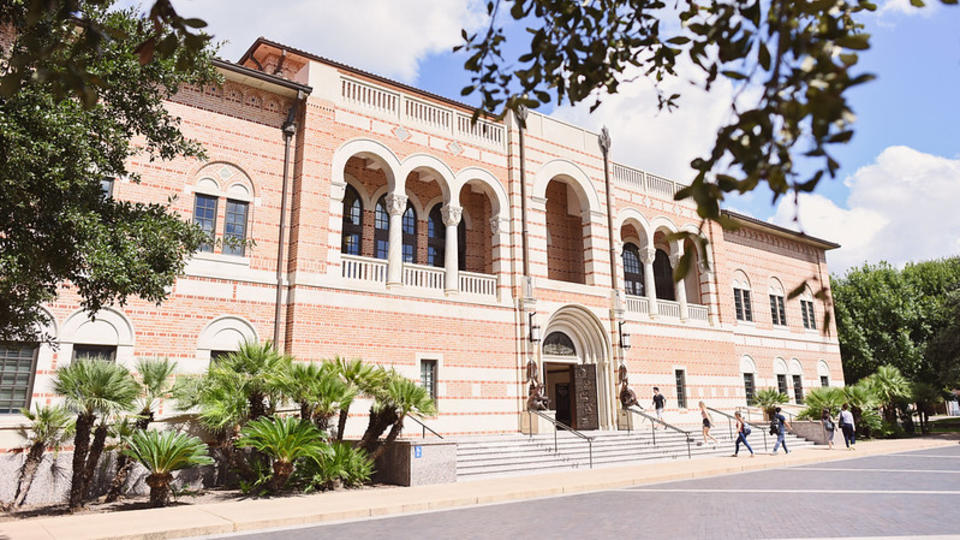
Tailored Fit
How Personalized Marketing Can Prevent Cancer
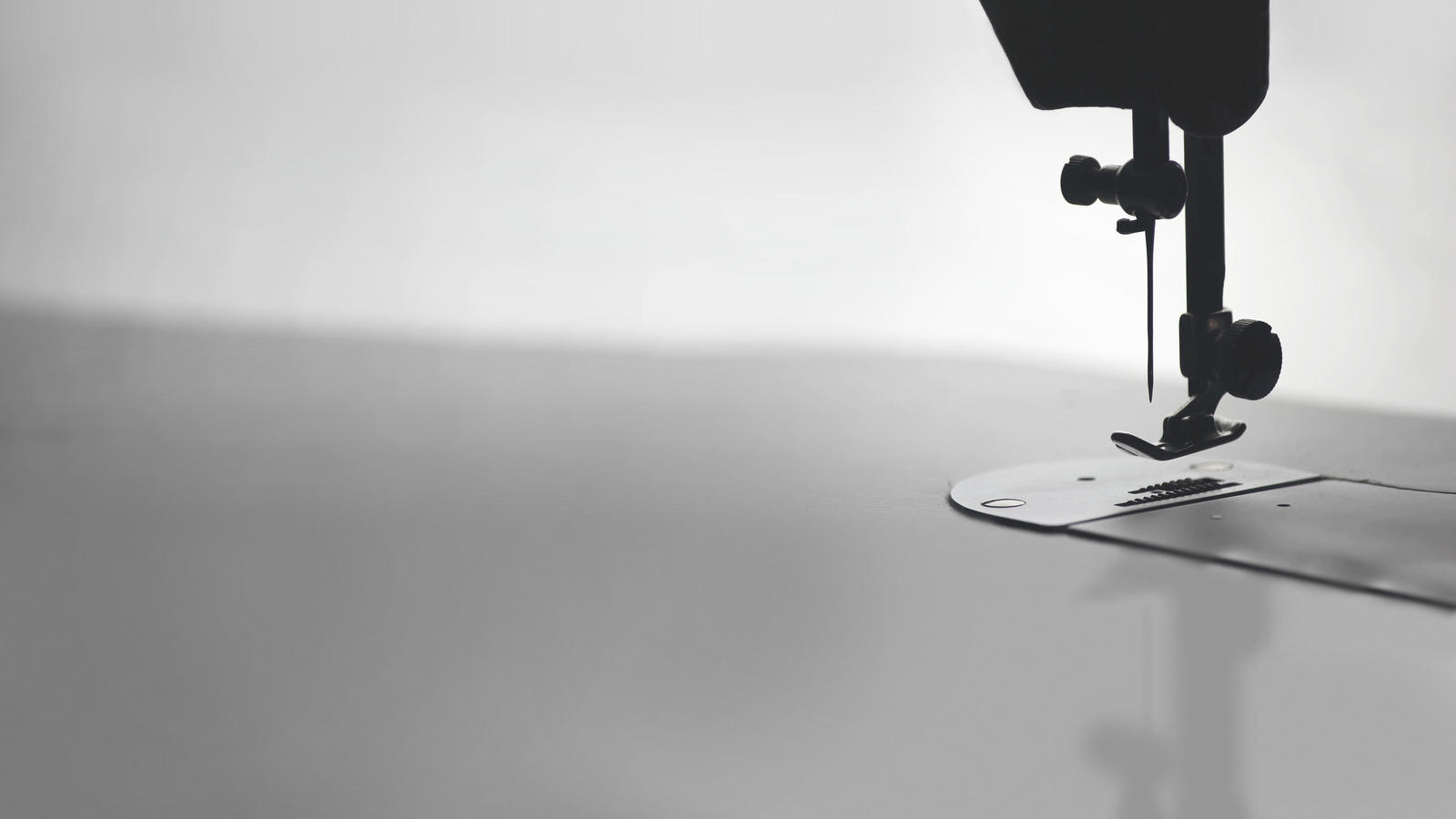

Based on research by Vikas Mittal
How Personalized Marketing Can Prevent Cancer
- Most hospital outreach still relies on untailored – that is, untargeted – communications.
- Rice Business Professor Vikas Mittal shows that tailored, personalized health care marketing works better to convince at-risk patients to get screening for liver cancer.
- Patients of different ages, genders and health statuses respond differently to the same intervention and also to different interventions, meaning outreach shouldn’t be one size fits all.
Amazon is famous for targeted marketing that approaches customers based on their unique needs. Like other successful businesses, such as Netflix, the company taps into machine learning, which uses customer data to understand their behavior.
Hospitals and medical centers rely on marketing too, investing heavily in direct-to-patient outreach to urge at-risk people to get regular screenings. Johns Hopkins Hospital’s cancer center, for example, uses emails, letters, seminars and community events to encourage patients to get screened for potential cancer. The high cost of cancer treatment makes this effort worth it: research shows regular screenings help with early detection, leading to more cost-effective treatments and better prognoses.
But hospitals can – and must – improve their outcomes much more, by melding this essential outreach with individually tailored communications based on machine-learning insights.
In an award-winning paper, Rice Business Professor Vikas Mittal and colleagues developed new algorithms indicating that targeted, personalized outreach can increase screenings among at-risk patients. “Outreach marketing” – including sending informational letters and talking to patients about potential barriers to screening – was indeed a powerful motivator for patients to get screened, ultimately lowering health care costs for patient and hospital. But patients with different characteristics, Mittal’s team found, responded differently to marketing interventions. When it came to marketing campaigns for cancer screening prevention, one-size-fits-all outreach efforts were neither effective nor economical. Personalized marketing works better for preventing cancer.
To conduct their research, the researchers randomly divided 1,800 patients at UT Southwestern Medical System at risk for hepatocellular carcinoma – the most common type of primary liver cancer – into three groups – usual care, outreach alone, and patient navigation, which includes help such as follow-up calls, motivational messages and assistance spotting specific barriers. They followed each group to see if patients scheduled an MRI or CT scan within six months, from 6-12 months and from 12-18 months.
The first group was asked to receive a screening during their doctors’ visits and wasn’t contacted after that. The second group received a one-page letter in the mail, then staff called patients who didn’t schedule a screening. The third group receiving patient navigation got the same treatment as the second group supplemented with phone calls designed to identify potential barriers, which they used to give customized motivational messages encourage coming in for a screening.
The researchers used patient data from medical records, including patients’ age, gender, ethnicity, income, commute time, health status, how often they received healthcare services, whether or not they had insurance and how populated their neighborhoods were.
Following traditional methods, Mittal’s team found that the patients who got a letter and call were 10-20% more likely to complete a screening, while those who got the customized motivational messages were 13-24% more likely to schedule their screening. But this is where traditional medical research stops, without asking a crucial question: Within each group, such as those of the 600 patients receiving patient navigation, could screening rates differ based on patients’ individual characteristics?
In past research, everyone receiving the same stimulus is presumed to respond the same way. There was no statistical technique to separately estimate the responsiveness of patients with different characteristics. Mittal’s team solved this problem by using a machine learning technique called causal forests.
By using "causal forests" to quantify how each of the three marketing approaches could be applied to different patients, Mittal’s team found, improved returns on the traditional approach by a remarkable 74-96% – or by $1.6 million to $2 million.
Using traditional methods, physicians would have concluded that every patient should get patient navigation because it was a more intensive marketing approach. The causal forest method showed otherwise: there are small groups of patients with unique characteristics who respond best to specific types of overtures. Minority women in good health who had insurance, visited the doctor often and lived close to clinics in more populated neighborhoods responded especially well to all three types of outreach interventions. Younger patients with long commutes who live in neighborhoods with more public insurance coverage embraced the second type of intervention, outreach alone. And older patients in higher-income neighborhoods favored the patient-navigation approach.
The stakes for common marketing practices like “AB testing” could not be higher. In AB testing, marketers run randomized experiments such as showing ads to some people and not to others. If those seeing an ad, on average, buy more, the conclusion is to blanket the market with ads. But AB testing ignores the fundamental idea that customers exposed to an ad might buy differently in response to an ad based on their individual characteristics. In fact, research shows, many customers seeing a non-tailored ad will buy less than those not seeing an ad.
Personalized marketing can uncover these differences and substantially increase the return on marketing investments in many settings such as retail and ecommerce, services marketing, business-to-business marketing and brand management. Healthcare companies should consider dedicating more resources to machine learning, which can power data-driven patient-centric outreach programs. Because individual health is a civic good, policy makers and organizations need to support these personalized outreach programs.
As for patients themselves, giving detailed personal data to a doctor or receiving highly personalized, unsolicited phone calls legitimately can seem like an invasion of privacy. But Mittal’s research shows, it measurably has the potential to save your life.

Vikas Mittal is the J. Hugh Liedtke Professor of Marketing at the Jones Graduate School of Business.
To learn more, please see: Chen, Y.C., Lee, J.Y., Sridhar, S., Mittal, V., McCallister, K., & Singal, A.G. (2020). Improving Cancer Outreach Effectiveness Through Targeting and Economic Assessments: Insights from a Randomized Field Experiment, Journal of Marketing, 84(3), 1-27. https://doi.org/10.1177/0022242920913025.
Never Miss A Story
